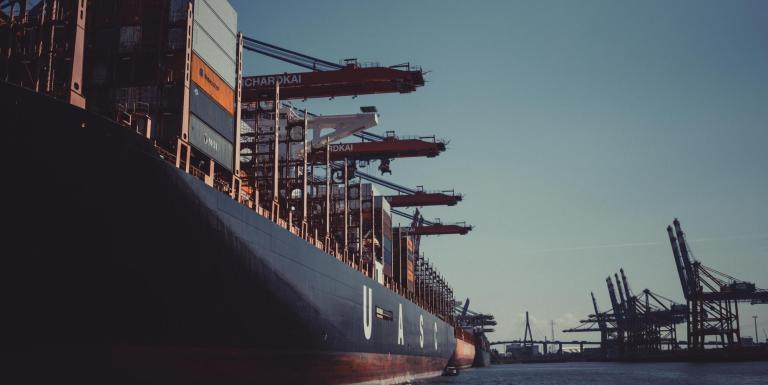This Destination addresses activities that improve the climate and environmental footprint, as well as competitiveness, of different transport modes.
The transport sector is responsible for 23% of CO2 emissions and remains dependent on oil for 92% of its energy demand. While there has been significant technological progress over past decades, projected GHG emissions are not in line with the objectives of the Paris Agreement due to the expected increase in transport demand. Intensified research and innovation activities are therefore needed, across all transport modes and in line with societal needs and preferences, in order for the EU to reach its policy goals towards a net-zero greenhouse gas emissions by 2050 and to reduce significantly air pollutants.
Link with CMA Goals
Goal II: A competitive, innovative and sustainable blue economy for the Black Sea / Priority 2: Promote transport and digital connectivity of the Black Sea
This Destination contributes to the following Strategic Plan’s Key Strategic Orientations (KSO):
• C: Making Europe the first digitally enabled circular, climate-neutral and sustainable economy through the transformation of its mobility, energy, construction and production systems;
• A: Promoting an open strategic autonomy[[‘Open strategic autonomy’ refers to the term ‘strategic autonomy while preserving an open economy’, as reflected in the conclusions of the European Council 1 – 2 October 2020.]] by leading the development of key digital, enabling and emerging technologies, sectors and value chains to accelerate and steer the digital and green transitions through human-centred technologies and innovations.
It covers the following impact areas:
• Industrial leadership in key and emerging technologies that work for people;
• Smart and sustainable transport.
The expected impact, in line with the Strategic Plan, is to contribute “Towards climate-neutral and environmental friendly mobility through clean solutions across all transport modes while increasing global competitiveness of the EU transport sector", notably through:
1. Transforming road transport to zero-emission mobility through a world-class European research and innovation and industrial system, ensuring that Europe remains world leader in innovation, production and services in relation to road transport (more detailed information below).
2. Accelerating the reduction of all aviation impacts and emissions (CO2 and non-CO2, including manufacturing and end-of-life, noise), developing aircraft technologies for deep reduction of greenhouse gas emissions, and maintaining European aero-industry’s global leadership position (more detailed information below).
3. Accelerate the development and prepare the deployment of climate neutral and clean solutions in the shipping sector, reduce its environmental impact (on biodiversity, noise, pollution and waste management), improve its system efficiency, leverage digital and EU satellite-navigation solutions and contribute to the competitiveness of the European waterborne sector (more detailed information below).
4. Devising more effective ways for reducing emissions and their impacts through improved scientific knowledge.
Project outputs and results are expected to contribute concretely to the following expected outcomes as marked (“*”) whilst supporting the overall medium and longer term objectives:
Establishing the basis for achieving TRL 8 in on-board use of high power fuel cells by 2030.
*Feasibility and technical demonstration of the use of high-power fuel cells in co-generation and/or combined cycle mode in waterborne transport.
*Proof of scaling up, to a target of significantly above 3 MW power output, of fuel cell installations for all shipping applications, including main propulsion of a short sea shipping or inland navigation vessel.
*In case of a fuel cell using fossil fuel as input proof of significant efficiency gains (at least 20%) in a realistic environment compared to the conventional use of the fuels (e.g. within an ICE) with consequent reduction in GHG emissions.
*Demonstration of the exploitation on-board of waste thermal energy produced by high temperature fuel cells in ship-specific applications (e.g. hot water, steam production, HVAC, etc.) for potential mass-market application.
*Showing a realistic pathway to the wider use of fuel cell technology in waterborne transport including the assessment of the maturity and resulting mid-term potential of various fuel cell systems. This may include an initial focus on lower power propulsion applications in inland navigation where power reserves for adverse sailing conditions are less relevant.

